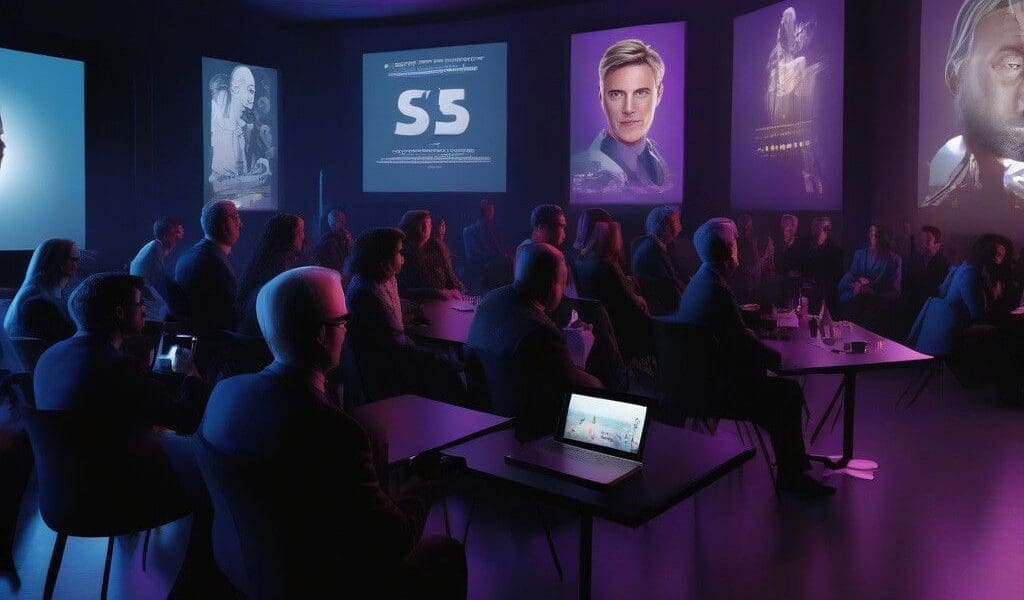Meta’s New Movie Gen: A Leap into AI-Powered Filmmaking
Meta, the parent company of Facebook, has taken a bold step into the filmmaking domain with its latest collaboration with Blumhouse Productions, famed for creating suspenseful hits such as “The Purge” and “Get Out.” This partnership is centered around Meta’s newly launched generative AI video model, aptly named Movie Gen, designed to create realistic video and audio clips based on user input. This initiative not only marks a significant move for Meta but also sets the stage for how artificial intelligence can redefine creative storytelling in the film industry.
The Movie Gen technology allows filmmakers to generate video content that can closely align with their creative visions. Blumhouse has already tapped notable filmmakers like Aneesh Chaganty, The Spurlock Sisters, and Casey Affleck to explore the potential of Movie Gen. Chaganty’s film will debut on the Movie Gen platform, showcasing how AI can streamline the filmmaking process while maintaining artistic integrity.
Blumhouse CEO Jason Blum noted the importance of including artists in the development of such technologies. He highlighted how innovative tools like Movie Gen could greatly enhance the storytelling capabilities of directors. This perspective illustrates a growing understanding within the creative community that AI is not a replacement for human creativity but a tool to amplify it.
Yet, this venture is not without its challenges. Many in the creative industries remain cautious about generative AI due to concerns over copyright and consent. Several lawsuits against AI companies, including Meta, have emerged, alleging unauthorized use of copyrighted materials to train AI systems. This has led to heightened scrutiny and skepticism among creators who fear their work may be used without permission.
In response to these challenges, Meta is making strides to reassure content creators. The company has recently entered into agreements with high-profile actors such as Judi Dench, Kristen Bell, and John Cena, ensuring that they are compensated when their likeness or voice is used in AI-generated projects. This shift is crucial in re-establishing trust with creators who may feel marginalized by the rapid advancements in technology.
The competitive landscape in AI-generated content is heating up, as other tech giants are also making significant moves. For instance, Microsoft-backed OpenAI has been in discussions with Hollywood executives regarding its video generation tool, Sora, although no partnerships have been finalized yet. Furthermore, Lions Gate Entertainment has recently announced a collaboration with Runway, another AI startup, indicating a broader trend of interest in AI within the film industry.
The emergence of AI in creative sectors poses both opportunities and dilemmas. On one hand, the integration of AI tools like Movie Gen can democratize filmmaking, offering smaller creators access to high-quality production capabilities that were previously reserved for major studios. On the other hand, it raises ethical questions regarding authorship, ownership, and the essence of artistic expression.
Content creators must weigh the benefits of AI assistance against their desire to retain control over their work. The dialogue surrounding these issues is critical, as it will shape the future landscape of creative industries. Companies like Meta must navigate this terrain carefully, balancing innovation with the rights of creators to ensure a fair and sustainable ecosystem.
In conclusion, Meta’s collaboration with Blumhouse to launch Movie Gen exemplifies a significant shift towards AI-driven filmmaking. As technology evolves, it will be essential for the creative community to remain engaged in discussions about ethics and rights. By prioritizing collaboration and transparency, both technology companies and creators can cultivate an environment where art and innovation coexist harmoniously.








